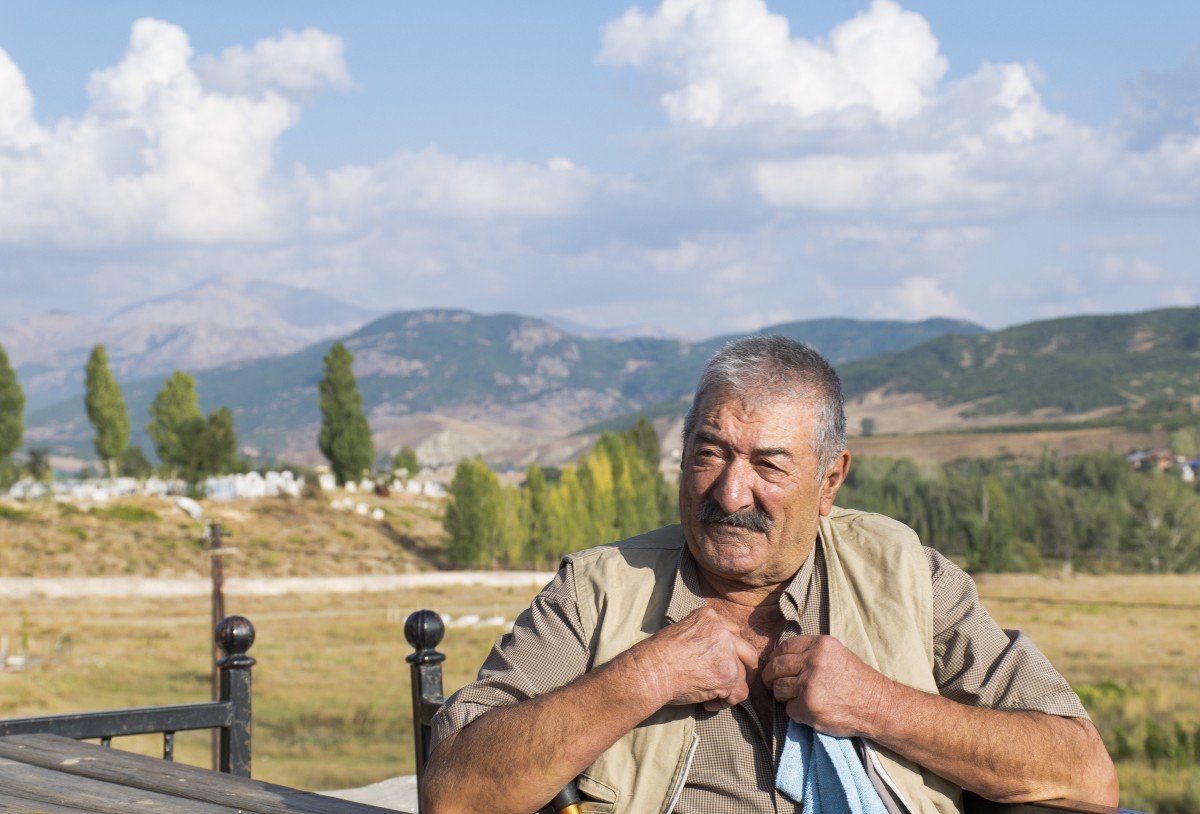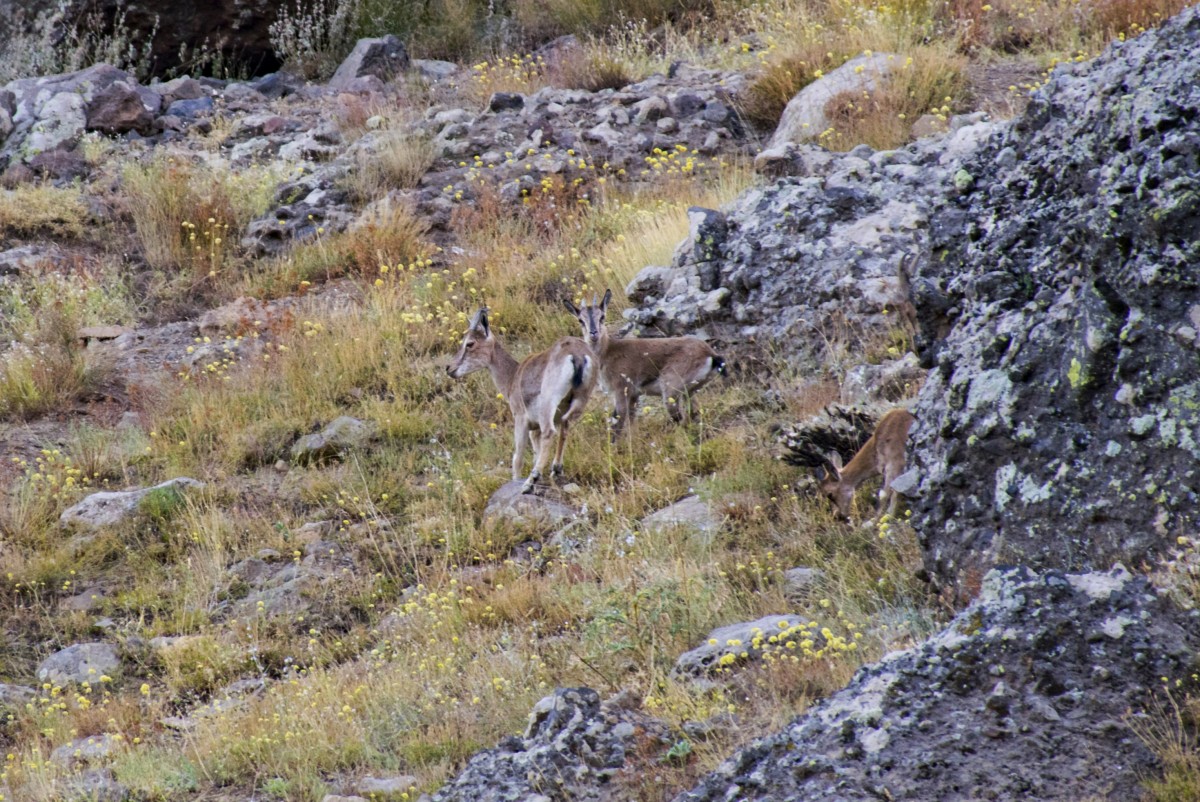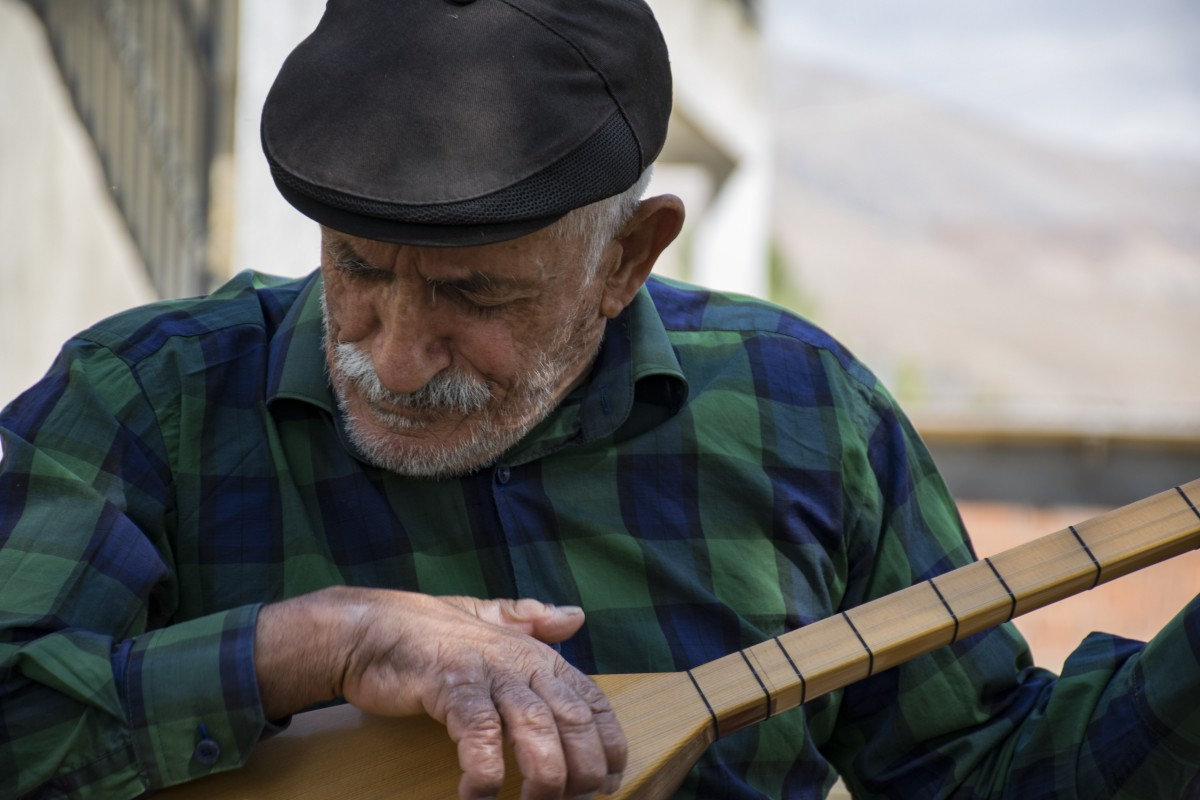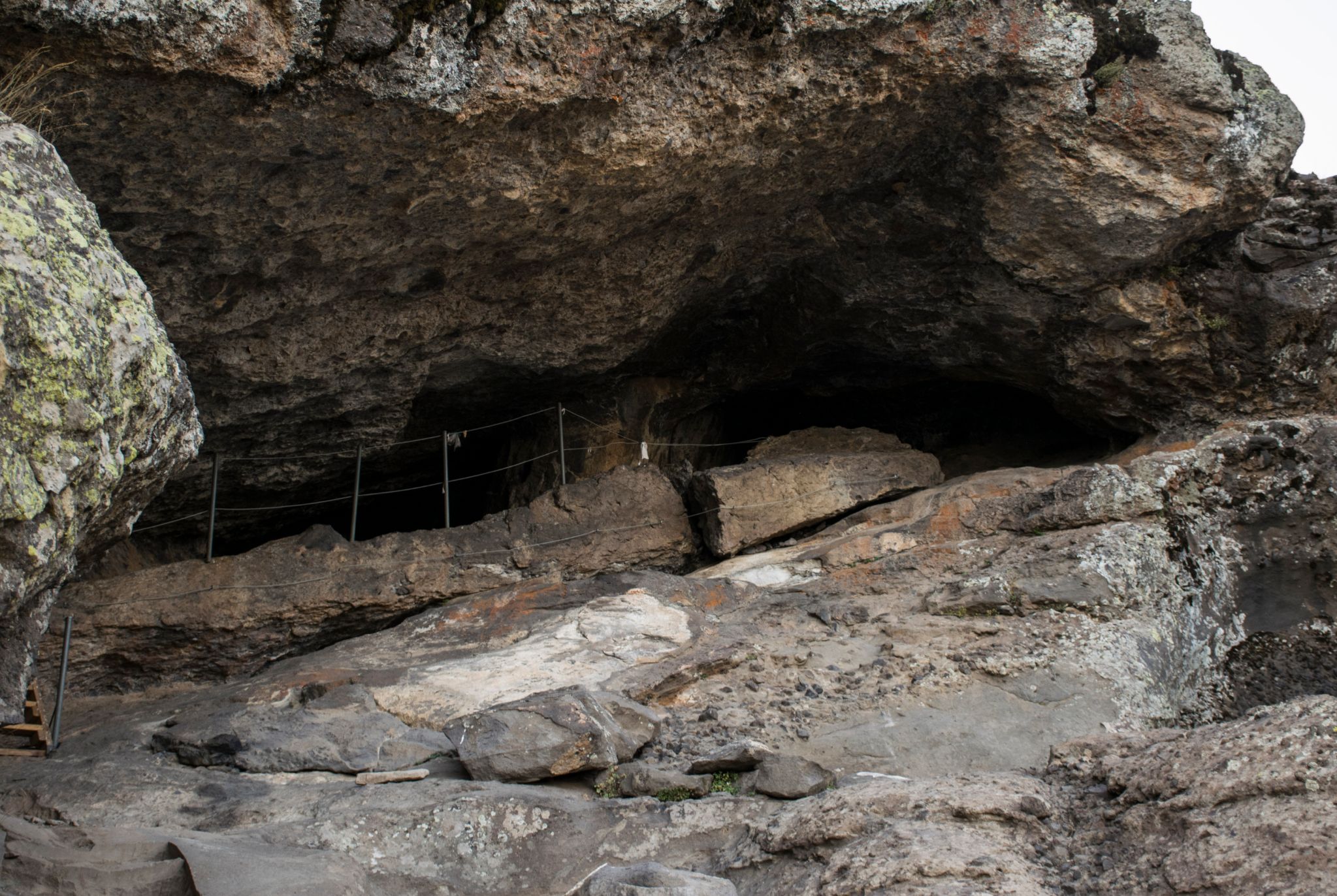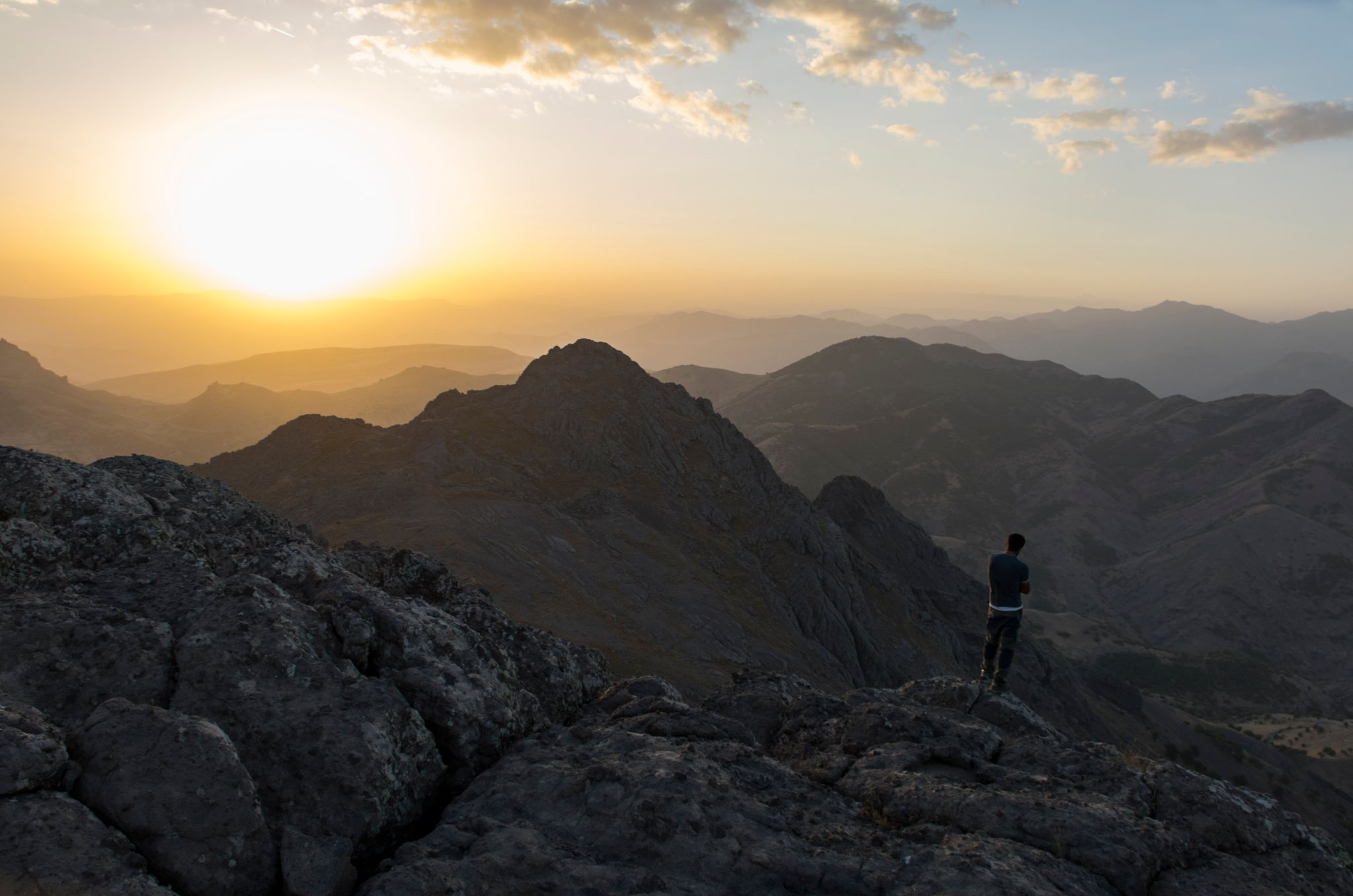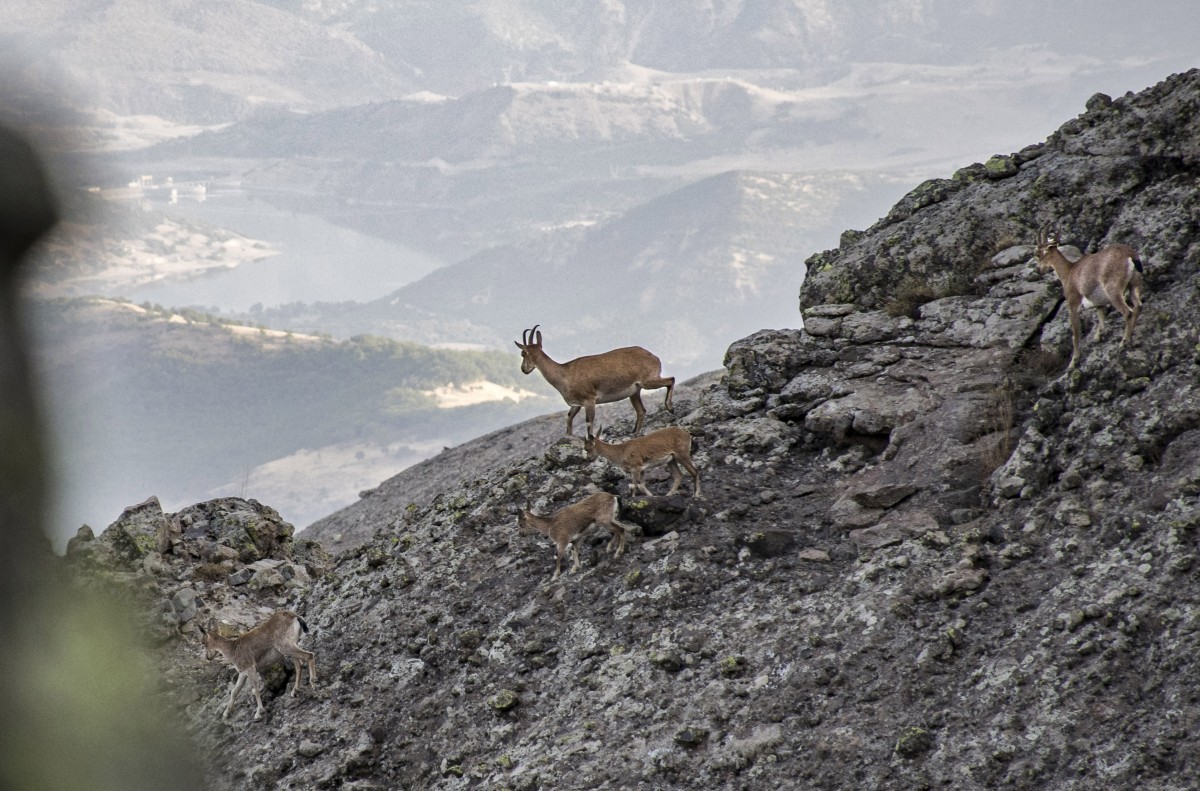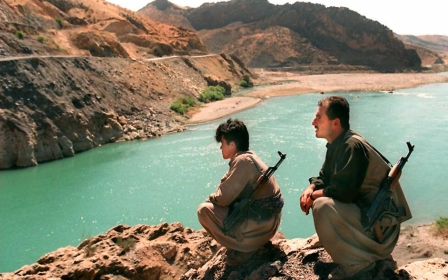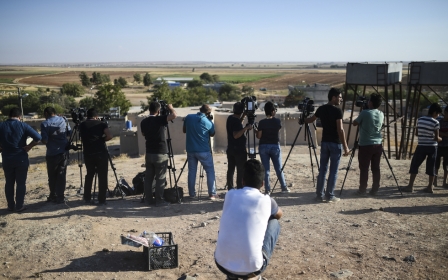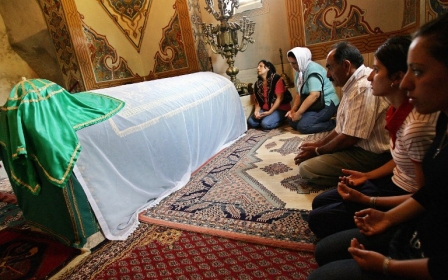Turkey's Alevis and the myths of the mountain goats

Ali Ekber Frik, a 74-year-old dede, or spiritual leader, tells an old story in a low, raspy voice, his plump fingers playing with prayer beads. He’s in Ovacik, a small town in Turkey’s Tunceli province, known by locals as Dersim, in eastern Anatolia.
Behind him a shepherd watches over his flock of sheep near a graveyard as the late afternoon sun envelops green rolling hills in its warm glow.
“Perhaps 150 years ago, three people came from Kemah [a nearby town] to the foot of the Munzur Mountains, and they were very hungry,” he says.
“Seeing a fire in a cave, they approached and saw that four or five people had butchered a mountain goat, and were waiting as it cooked. The travellers said: ‘We are very hungry, we came here for a piece of bread, but we don't eat mountain goat and if you ask us, you shouldn't either,’ and they immediately left, even though they were starving.”
New MEE newsletter: Jerusalem Dispatch
Sign up to get the latest insights and analysis on Israel-Palestine, alongside Turkey Unpacked and other MEE newsletters
The travellers, like Frik, were Alevis, Turkey’s largest religious minority, and they consider the mountain goats sacred. Dersim is chiefly inhabited by a long-persecuted people who are a minority of a minority.
They are Zaza Kurds, otherwise known as Kirmanc, speaking a dialect different from Kurdish peoples found elsewhere in Turkey and the region. Their form of Alevism is also different from that followed by the related Bektasi Alevis, who are ethnically Turkish and have been more influenced by Shia Islam.
Alevis suffered repression, surveillance and massacres under the Sunni Ottoman sultans who considered them heretics.
Ferociously independent, Dersim was never fully under government control until an uprising in 1938-39 was crushed by the state.
These same mountains that protected the Zaza Alevis before the advent of modern warfare became the site of their massacre. Soldiers dropped bodies from cliffs into the Munzur River and lit fires at the mouths of sealed caves, sucking the oxygen out of the people trapped inside.
The Zaza Alevis consider not just mountain goats, but all living things sacred, and all things that contribute to life, such as the sun and water.
The Zaza Alevis’ heterodox, mystical belief system known as Raa Haqi, was influenced by pre-Islamic Anatolian shamanistic practices, Zoroastrianism, Buddhism, Armenian Christianity, and only later by Shia Islam. Unlike most members of Turkey’s other Alevi communities, many Zaza Alevis reject the label of Muslim.
They consider not just mountain goats, but all living things sacred, and all things that contribute to life, such as the sun and water. They worship nature itself. Older generations in Dersim say prayers to the sun and moon, but they say this practice is now being lost.
Dersim, particularly in the Munzur Valley National Park, has the most diverse ecosystem in Turkey. The Park is teeming with over 1,500 plant species, 43 of which are endemic, and is home to animals such as the brown bear, Eurasian lynx, wildcat, gray wolf, and wild boar.
“We call mountain goats, honey bees, and weasels in the mountain sacred. Because they don’t harm anyone, they are sacred. We don't kill them,” explains Frik.
To show the value of nature in their beliefs, he recites an old poem about the sacredness of trees, and the role that wood has played in holy objects, such as the cradle of the Kaaba (the holiest site in Islam) or the saddle of the Imam Ali, whom Alevis revere.
“That is how much we value trees, since time immemorial, and the trees love us back. Even though our forests burn, they never give up on us,” Frik says. Turkey, as elsewhere in the world, has experienced an uptick in forest fires due to climate change.
This reverence for nature is why Dersim residents are so disturbed by the hunters who sometimes come to take their sacred mountain goats as trophies. The goats, some species of which are endangered, are protected by Turkey’s Ministry of Forestry and Water Affairs, but the government says older animals are allowed to be hunted in limited quantities, and that 60 per cent of the money earned from the tenders goes back to local villages.
This past summer, activists launched a campaign to ban mountain goat hunting in the region and the Dersim Cultural and Natural Heritage Conservation Initiative filed a lawsuit requesting cancellation of the tenders. The ministry responded by suspending a tender it had opened to hunt 17 goats, and promised to conduct an investigation, taking into consideration local customs and beliefs.
Local environmentalists don’t particularly care whether the hunting is done legally or not, they are horrified by it, and want it forbidden without exception. “We’ve watched as killers coming from outside the province and from different European countries hunt Dersim’s most important species,” said activist Hasan Sen of the organization Munzur Protection. “The authorities close their eyes to massacres.”
‘The property of saints’
For the Alevis, killing such holy creatures isn’t just senseless and immoral, but a dreadful sin. Transgressors are traditionally outcast and labelled as duskun, or "fallen". “In the old days when people did this, they would be sent into exile,” says 68-year-old dede, Zeynel Batar, in the village of Kedek.
“There was a guy in our village who’d go after the mountain goats. We warned him many times not to. One day he plunged off the rocks and died. They didn't even wash his body in the square.”
Though Zaza Alevis consider all wild animals holy, mountain goats, of which there are several local varieties, are especially sacred. “They are the property of saints,” Batar explains.
“These goats eat special grass but when it’s wintertime the mountains are full of snow and what do they eat? Their food comes from the unknown, brought by the saints.”
Three mythical saints are said to be the goats’ shepherds - Sarik Sivan, Six Ahmet Dede, and Duzgun Baba
Three mythical saints are said to be the goats’ shepherds - Sarik Sivan, Sıx Ahmet Dede, and Duzgun Baba. Duzgun - which might be a Turkicised version of a Zaza word meaning sharp rocks or cliffs - is the most famous of them.
On Duzgun Baba mountain, near the town of Nazimiye, 27-year-old dede Kaya Celik climbs the stairs carved into the mountainside and recalls the legend of the holiest of the shepherd saints.
Though there are many versions, according to most, Duzgun’s original name was Sah Haydar, and he was the son of an important religious leader, Kures Baba. Haydar was known for having well-fed goats, even in the winter when food was scarce, and this made his father curious.
“One day, Kures Baba follows his son and the flock and sees that when Haydar touched the oak trees with his staff, the trees would turn green. This was a miracle! When his father sees this, he is both proud but also shocked that his son has surpassed him,” Celik says.
But then, one of Sah's sheep picks up the scent of the shepherd’s father and sneezes. Sah Haydar chuckles and says, “What’s wrong little sheep, did you smell my dad Kureso Khurr?”, using a nickname with which a son shouldn’t call his father in a culture where elders are revered. He turns around, and seeing that his father really is there, leaps to the top of the mountain in shame, disappearing into another realm. After that, he was remembered as Duzgun Baba, and the mountain bears his namesake.
'Each flock has a leader, an old male goat that has a long beard'
- Kaya Celik, Zaza Alevis spiritual leader
“A couple of animals followed Sah, and his father brought the rest of the flock down. We believe that the goats wandering around this mountain right now are those that followed Duzgun Baba, and are therefore divine,” Celik says.
Higher up on the mountain, past the Alevi shrine, or ziyaret, with a fountain pouring ice-cold water into the mouths of grateful pilgrims, a young man named Murat Babayigit nimbly scales across the jagged rock surface, pointing to a very narrow cave, just large enough to crawl through.
“Duzgun Baba’s bed is in this cave,” Babayigit says. “It’s a sacred place. You feel content up here, happy.”
Still higher, at the very top, lies Duzgun’s grave, a large pile of grey stones, surrounded by various smaller cairns. The sun and moon - both sacred to the Alevis - are presiding together over opposite ends of the early evening sky.
Powerful bond
The endless, jagged mountains seen from here have protected the people of Dersim and other marginalised communities for hundreds of years during various waves of persecution.
In the 1990s, thousands of villages and hamlets in over a dozen provinces in the east and southeast were emptied and scorched by the military, in government operations against the armed Kurdistan Workers' Party (PKK).
The Turkish interior ministry later launched a project to return Kurds to their homes, called the "Return to Village and Rehabilitation Project". The government-funded project ran from 1999-2015 at a cost of 200m Turkish lira, which at the time was the equivalent of $72m, but was criticised as ineffective by Human Rights Watch.
According to the Interior Ministry, during the fight against the PKK, 62,448 houses were emptied and 386,000 people were forced to emigrate. Now just 28,834 houses are occupied by the people who used to live in them. A total of 187,000 people returned to their villages in 14 provinces, including Dersim.
Over the years, sporadic tensions and clashes have been reported in the province - in 1994, six teachers in Dersim were killed by PKK fighters. Last year during clashes between the PKK and the Turkish military, one soldier was killed and three others wounded.
But this long history of unrest has only strengthened the people’s bond to the land, the animals and each other. “Alevis went to the mountains to run away from tyrants, and when they got there, they saw the mountain goats,” Frik said.
“Every time we go there - when we take our flocks there, when we plant garlic, when we pick mushrooms - we are together.”
This article is available in French on Middle East Eye French edition.
Middle East Eye delivers independent and unrivalled coverage and analysis of the Middle East, North Africa and beyond. To learn more about republishing this content and the associated fees, please fill out this form. More about MEE can be found here.


